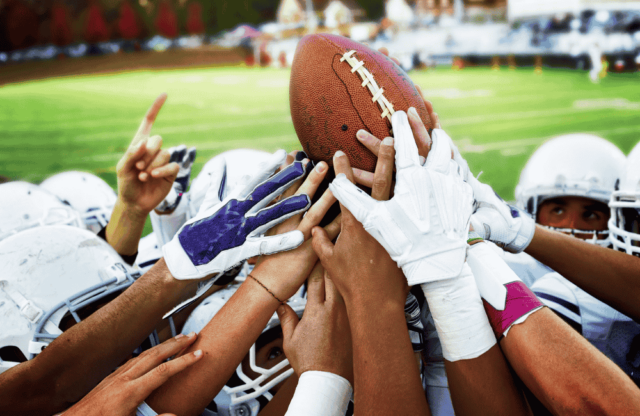It’s fair to say that there is a lot going on in American politics right now — and we’re no longer at the point where we can say “Keep politics out of sports.” The fact is that politics have always affected schools and athletics; and no matter your own opinions, no matter which direction you lean in, you have a responsibility to create a safe environment where student-athletes can thrive both as athletes and individuals.
In last week’s article, we discussed the DOE’s decision to rescind NIL payments from Title IX regulations retaining to NIL being divided between men and women. Now, more news, more decisions role in: immigration policies, executive orders against transgender athletes and the Department of Education’s crackdown on DEI initiatives. How do these policies affect your school, your program and your athletes?
How Recent Policies Impact Athletics
1. Recruitment and scholarships
The ban on DEI programs can impact recruitment efforts both in high school and college athletics. Athletic programs often rely on these initiatives to attract a diverse pool of student-athletes, which strengthens both team performance and department culture. Without DEI programs, recruiting diverse talent might become more challenging, and programs may need to rethink how they identify and support athletes from underrepresented backgrounds. Scholarships specifically aimed at supporting these athletes could also be eliminated, limiting opportunities for many talented players.
2. Team culture and inclusion
Team culture is the backbone of success in any athletic program. Without DEI initiatives, there’s a risk of increased discrimination and exclusion within teams. This could heavily decrease the morale of individuals and teams as a whole. Additionally, many schools and athletic departments offer mental health resources tailored to the needs of diverse athletes. Eliminating these resources could negatively impact athletes’ mental well-being, in turn, affecting their performance.
3. Compliance and legal risks
Athletic departments must now reassess their recruitment, training and support practices to ensure compliance with new regulations. Failure to comply could result in the loss of federal funding, impacting team budgets, facilities and scholarships. Additionally, removing DEI programs may lead to legal challenges from students and advocacy groups who argue that these changes create discriminatory environments.
4. College-level implications
For colleges, these policy changes could create conflicts with NCAA regulations, which have emphasized diversity and inclusion in the past, and not yet responded to the DOE’s DEI pullback. With so many conflicting mandates, navigation will be challenging and ADs will need to carefully coordinate between athletic departments and school administrations. Colleges that remove DEI programs risk financial support from alumni and donors who value these initiatives, potentially impacting funding for athletic scholarships and facilities.
5. High school-level implications
High school athletic programs serve as pipelines for college sports. Without DEI initiatives, fewer athletes may pursue collegiate athletics, reducing the talent pool available to colleges. This could ultimately affect team performance at the collegiate level. Furthermore, high schools may face backlash from local communities if the removal of DEI programs is perceived as limiting opportunities for certain groups.
Where Do ADs Go From Here?
It may seem like you’re consistently playing catch up, consistently adjusting and adjusting and adjusting to the decisions coming from D.C., from the NCAA or NFHS, and even your institution. In times like this, it’s important to remember the heart and soul of your program — your athletes — and your responsibility to them.
Many of your athletes are scared, or even angry, right now. They may fear for their place in the world, in school, in athletics, they may fear for their safety, or they may fear for their family. No matter where you stand, offering them support should be the priority.
- When you foster inclusive leadership, you can create an environment where all athletes feel valued and supported, regardless of their background. This requires setting a tone of respect and fairness within your program.
- Prioritize mental health support and make it accessible to your students. Mental well-being is at the center of maintaining individual and team performance.
- Develop recruiting methods that prioritize merit and character while still promoting diversity within the boundaries of new legal frameworks.
- Engaging stakeholders and maintaining open communication with student-athletes, coaches, alumni and community members builds trust and support. Transparent communication can also ease the anxieties of student-athletes, while also allowing them to feel seen and heard.
The good news? Athletics have always been a source of refuge of sorts — a safe space where athletes from any background can go to forget their troubles, their struggles, and just play. The best way to continue that tradition is to build support systems on and off the field. By creating an environment where every athlete feels respected and valued, you’re building more than a better team — you’re shaping stronger, more confident individuals who will carry those lessons with them long after their jerseys are hung up.




